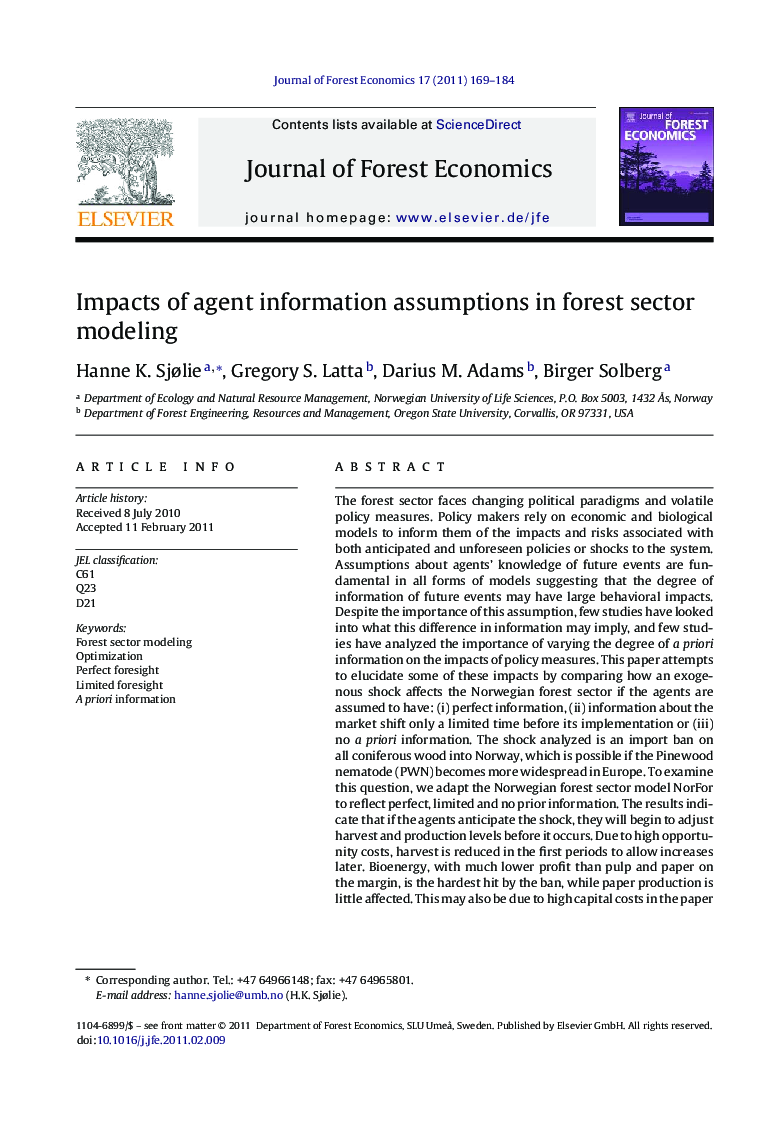| Article ID | Journal | Published Year | Pages | File Type |
|---|---|---|---|---|
| 92092 | Journal of Forest Economics | 2011 | 16 Pages |
The forest sector faces changing political paradigms and volatile policy measures. Policy makers rely on economic and biological models to inform them of the impacts and risks associated with both anticipated and unforeseen policies or shocks to the system. Assumptions about agents’ knowledge of future events are fundamental in all forms of models suggesting that the degree of information of future events may have large behavioral impacts. Despite the importance of this assumption, few studies have looked into what this difference in information may imply, and few studies have analyzed the importance of varying the degree of a priori information on the impacts of policy measures. This paper attempts to elucidate some of these impacts by comparing how an exogenous shock affects the Norwegian forest sector if the agents are assumed to have: (i) perfect information, (ii) information about the market shift only a limited time before its implementation or (iii) no a priori information. The shock analyzed is an import ban on all coniferous wood into Norway, which is possible if the Pinewood nematode (PWN) becomes more widespread in Europe. To examine this question, we adapt the Norwegian forest sector model NorFor to reflect perfect, limited and no prior information. The results indicate that if the agents anticipate the shock, they will begin to adjust harvest and production levels before it occurs. Due to high opportunity costs, harvest is reduced in the first periods to allow increases later. Bioenergy, with much lower profit than pulp and paper on the margin, is the hardest hit by the ban, while paper production is little affected. This may also be due to high capital costs in the paper industry and a perfectly elastic wood demand curve for bioenergy use. Substantial price increases for both raw materials and final products are suggested under either limited or perfect foresight. The analysis may provide useful insight about how agents react to sudden changes depending on their a priori information.
